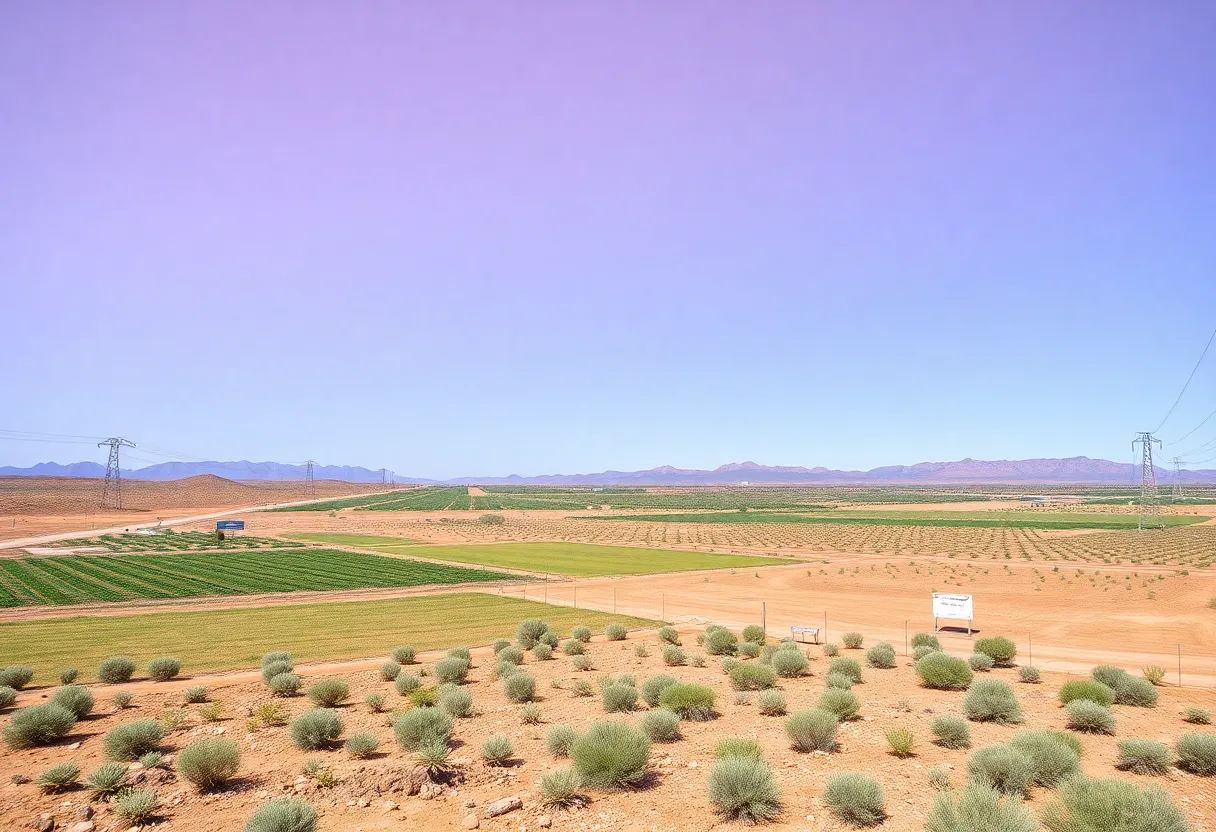News Summary
Arizona has enacted a ban on the expansion of large-scale irrigation in Mohave County to protect dwindling groundwater supplies. This new policy limits irrigation to fields cultivated within the last five years, reflecting the state’s commitment to sustainable water management amid growing concerns over groundwater depletion. Additionally, local farmers contest the assessments of water availability, prompting discussions on agricultural sustainability and water conservation in the arid region.
Arizona Enacts Irrigation Non-Expansion Policy in Mohave County to Protect Groundwater Supplies
The State of Arizona has officially imposed a ban on the expansion of large-scale irrigated farming in Mohave County, a decision aimed at safeguarding the region’s dwindling groundwater supplies. The announcement, made by Arizona’s Department of Water Resources, marks a significant measure to address the ongoing challenges associated with water use in this arid farming region.
This new policy, which establishes the Hualapai Basin as an Irrigation Non-expansion Area (INA), restricts irrigation to only those fields that have been cultivated within the last five years. As part of this order signed on December 19, existing irrigation practices may continue; however, no new large agricultural operations can be initiated.
Officials have raised concerns regarding the sustainability of groundwater usage in Mohave County, an area highly dependent on this resource. The Hualapai Basin currently experiences an estimated annual groundwater recharge of about 10,000 acre-feet, while the city of Kingman utilizes nearly 8,800 acre-feet annually and agricultural activities withdraw a staggering 25,800 acre-feet each year. The disparity indicates that, under current practices, 1 in 20 wells may run dry within the next century if no interventions are taken.
Meeting to Formulate Statewide Agriculture Plan
In a related effort, key state leaders, agricultural producers, and researchers convened at the University of Arizona’s Yuma Agricultural Center to discuss sustainable agricultural practices and water management issues in Arizona’s farming communities. This gathering aimed to address practical challenges in water utilization, crop productivity, and the application of agricultural research in arid climates.
Local farmers in the Hualapai Basin have contested state assessments regarding water availability, arguing that the region has boasted a sufficient water supply for centuries. Despite these claims, state officials maintain that current water extraction rates are unsustainable. As a precaution, the new policy necessitates that large well owners install water usage measuring equipment and report their annual withdrawals, although those using less than 35 gallons per minute are exempt from reporting requirements.
Historical Context and Previous Initiatives
The recent ban on irrigation expansion joins previous restrictions enacted in other regions of Arizona, including Douglas, Navajo County, and the Harquahala Valley. The state maintains that the current regulations stem from the 1980 groundwater management law, which already governs major urban areas with stricter standards compared to rural locales like Mohave County.
In response to the new restrictions, local farmers are considering appealing the decision, citing the inaccuracy of the official water usage assessments. Simultaneously, local leaders are pushing for enhanced groundwater management legislation at the state level, emphasizing the need for greater local authority to manage and protect groundwater resources effectively. The Water for Arizona Coalition has echoed this sentiment, advocating for sustainable management initiatives while recognizing the necessity for local governance improvements.
Impact on Rural Communities
The decision significantly impacts Mohave County and its largest city, Kingman, which rely entirely on groundwater for their water supply. Farmers and landowners are now faced with the challenge of adapting to a landscape where expansive irrigation efforts are prohibited, prompting necessary discussions about sustainable agricultural practices and water conservation.
This new regulation and accompanying initiatives reflect Arizona’s growing recognition of the need to balance agricultural productivity with the sustainable management of its critical water resources, particularly in the face of challenges exacerbated by climate variability and increasing demand.
Deeper Dive: News & Info About This Topic
- Havasu News: Arizona Leaders Meet in Yuma
- Wikipedia: Agriculture in Arizona
- Mohave Daily News: Gratitude in the Aftermath
- Google Search: Sustainable Agriculture Arizona
- Kingman Daily Miner: Water Worries Resurface
- Google Scholar: Arizona Water Management
- Fox 10 Phoenix: Arizona Ends Water Lease
- Encyclopedia Britannica: Groundwater Management

Author: STAFF HERE PHOENIX WRITER
The PHOENIX STAFF WRITER represents the experienced team at HEREPhoenix.com, your go-to source for actionable local news and information in Phoenix, Maricopa County, and beyond. Specializing in "news you can use," we cover essential topics like product reviews for personal and business needs, local business directories, politics, real estate trends, neighborhood insights, and state news affecting the area—with deep expertise drawn from years of dedicated reporting and strong community input, including local press releases and business updates. We deliver top reporting on high-value events such as the Waste Management Phoenix Open, Cactus League Spring Training, and Arizona State Fair. Our coverage extends to key organizations like the Greater Phoenix Chamber of Commerce and Visit Phoenix, plus leading businesses in technology and healthcare that power the local economy such as Intel and Banner Health. As part of the broader HERE network, including HERETucson.com, we provide comprehensive, credible insights into Arizona's dynamic landscape.




